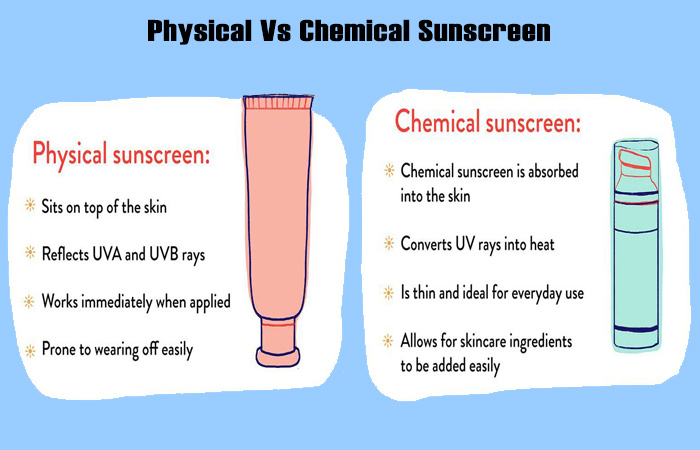Physical Vs Chemical Sunscreen which one should you use?
215

Both physical and chemical sunscreens offer protection against the harmful effects of the sun's ultraviolet (UV) rays, but they work in different ways. The choice between physical and chemical sunscreen ultimately depends on your personal preferences, skin type, and specific needs. Here's a breakdown of each type:
Physical Sunscreen:
- Ingredients: Physical sunscreens contain active mineral ingredients like zinc oxide or titanium dioxide. These minerals work by forming a physical barrier on the skin's surface that reflects and scatters UV rays.
- How it works: Physical sunscreens provide immediate protection upon application, as they create a physical barrier that blocks both UVA and UVB rays.
- Benefits: Physical sunscreens are less likely to cause skin irritation or allergic reactions, making them suitable for sensitive skin. They are also effective at protecting against a broad spectrum of UV rays.
- Drawbacks: Physical sunscreens can leave a white cast on the skin due to the mineral particles. They may feel heavier or greasier on the skin compared to chemical sunscreens.
Chemical Sunscreen:
- Ingredients: Chemical sunscreens contain organic compounds such as avobenzone, octinoxate, or oxybenzone. These compounds work by absorbing UV radiation and converting it into heat, which is then released from the skin.
- How it works: Chemical sunscreens need around 20 minutes to be absorbed into the skin before they become effective. They provide protection by absorbing and neutralizing UV rays.
- Benefits: Chemical sunscreens are often lighter in texture and blend more easily into the skin, leaving no white residue. They offer a wider range of formulations, including those that are water-resistant or suitable for specific skin types.
- Drawbacks: Some individuals with sensitive skin may experience irritation or allergies to certain chemical sunscreen ingredients. Additionally, chemical sunscreens may require more frequent reapplication since they can break down with sun exposure.
Ultimately, the choice between physical and chemical sunscreen depends on your personal preferences, skin sensitivity, and specific needs. If you have sensitive skin or a history of skin allergies, physical sunscreen may be a better option. If you prefer a lightweight, invisible sunscreen with various formulation options, chemical sunscreen might be more suitable. Regardless of the type you choose, it's important to select a broad-spectrum sunscreen with a high sun protection factor (SPF) and apply it generously and frequently to ensure adequate protection against UV rays.
